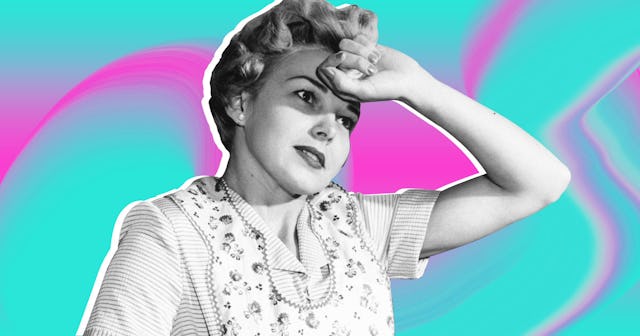Why Some Moms Are Microdosing LSD And Mushrooms

It’s difficult to gauge exactly how many mothers are microdosing LSD and mushrooms, considering both substances are predominantly illegal. However, those who are using these substances aren’t doing it to get high. This isn’t a recreational thing. This isn’t the Kool-Aid of the ’60s. More or less, this is the trend of mothers struggling with anxiety, depression, and exhaustion, who have found prescription medication ineffective and are now attempting something non-traditional to manage their stress and mental illness.
Now keep in mind, microdosing psychedelics isn’t a new thing. The term was actually coined in James Fadiman Ph. D. book The Psychedelic Explorer’s Guide: Safe, Therapeutic, and Sacred Journeys almost 10 years ago. Here’s how it works. Let’s use LSD, for example. To get yourself full-on, walls-melting tripped out, you would need to take around 100 micrograms of LSD. Microdosing, in contrast, is taking 10 to 20 micrograms every few days. In fact, to get it right, most microdosing parents use specialized scales that are intended to measure jewelry and other valuable metals. Rest assured, this isn’t about getting high.
So what are the benefits? Well, The Guardian interviewed a UK mother named “Rosie” who said, “You don’t feel high, just … better.” In fact, her story reminded me a lot of those who, 10 years ago, discussed the benefits of using marijuana in small doses to help treat depression and anxiety. Now CBD oil is all the rage. After the birth of Rosie’s child, she struggled with depression and anxiety. She went to doctors, but medication wasn’t working, so she turned to alcohol.
“I wasn’t getting blind drunk and peeling myself off pavements,” she says. “But if I felt bad, my mind would immediately travel to the next drink I could have. It was the only thing that helped block out the sadness.” This all changed when she switched to microdosing psychedelic mushrooms.
Scary Mommy and
GraphicaArtis/Getty
She found a kit and guide online on how to grow them, and it proved to be a game changer. She feels more confident, happier, and more focused. She says she’s very careful to keep her mushrooms far out of the reach of her pre-teen children. “But it definitely doesn’t impair my ability to parent,” she says. “If anything, my awareness is sharpened.”
I can’t help but feel sympathy for Rosie’s situation. I’m a father of three, and I have run the gamut when it comes to medications to treat my anxiety and depression. And I will admit, I have a pretty good mix at the moment. But it’s a daily struggle that I have accepted as part of my life. There are good times and bad times, and there are times when, if it weren’t for the support of my wife and the love I have for my children, I don’t know if I’d make it to the next sunrise. Microdosing does sound appealing, but I’m not sure I’m to the point of growing illegal mushrooms in my home or seeking out an LSD dealer.
But honestly, therein lies the rock and hard place when it comes to seeking out non-traditional medications. Sure, mothers post online about essential oils and the life-changing magic of tidying up, but frankly, when you are living with full blown anxiety attacks and crippling depression, a yard sale, yoga, or a diffuser just isn’t going to cut it. Obviously Rosie and others have had to say to themselves, “I’m so miserable that I’m going to risk jail time to make myself feel better.” And let’s be honest here, microdosing isn’t about getting high. It’s about trying to stay sane.
Not surprisingly, there aren’t a lot of actual scientific studies on the subject. And mushrooms and LSD are as taboo in the medical industry as they are in kitchen. The most recent study of note was reported by the Department of Cognitive Science at Macquarie University in Sydney, Australia in February 2019. Ninety-eight participants tried microdosing LSD and psilocybin (the active ingredient in psychedelic mushrooms). After six weeks of microdosing, participants noticed a small increase in neuroticism, along with lower levels of stress and depression.
Sounds pretty promising to me.
Of course, there are risks. Rosie mentioned that once her mushrooms developed blue streaks and she became terrified that she was about to kill herself. I’m sure she would have felt a lot safer microdosing under the care of a professional; however, that isn’t an option.
All of this makes me want to urge doctors to break down the taboos around psychedelic drugs to see what benefits they might contain. I don’t want to speak for all parents struggling with anxiety and depression, but I’m not looking to hallucinate. I’m already borderline eye-twitching most days caring for my three young children. I would, however, like to find something that could help me reduce or eliminate the pit in my stomach and the perpetual feelings of dread and failure that I fight each and every day. And if microdosing is a way to fix that, let’s bring down the taboos around it, test it, and package it in a regulated and safe way so that professionals can oversee its use.
This article was originally published on